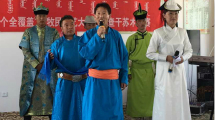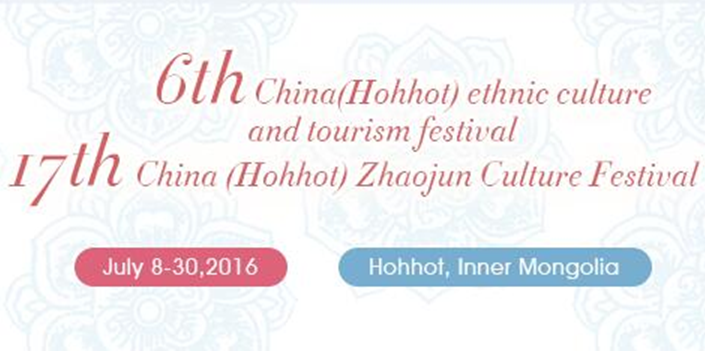Zhaojun
Updated: 2016-07-08
Zhaojun was one of the four beauties of ancient China. Like her peers', her fame was also tied to the political development of her time. Today, the name of Zhaojun not only symbolizes physical beauty, but also a spirit of goodwill bridging different cultures, even at the expense of one's own interests.
During the reign of the Han emperor Xuan (91-49BC), the Huns, or Xiong-Nu, the Han's troublesome northern neighbor, split into five kingdoms, each led by a chieftain known as Shan-Yu. Wars started among the five Shan-Yus in a bid for control. Shan-Yu Khukhenye, who was defeated by his brother Shan-Yu Zhizhi-Guduhu, decided to befriend his former foe in the south, Emperor Xuan, by suggesting that he pay the emperor a personal visit. Khukhenye was the first Shan-Yu that ever came to pay tribute to a Han emperor. Rejoicing and feeling a bit flattered, Emperor Xuan went out of his way to meet Khukhenye at the suburb of the capital Chang'an and held a grand banquet in his honor. After a month's stay in Chang'an, Khukhenye thought of going back home and asked Emperor Xuan for help. The emperor sent an army ten thousand strong to escort him back and gave him a hundred thousand bushels of food to bring back to his starving people. The thankful Khukhenye was determined to maintain the friendly relationship with the Han Dynasty.
After Emperor Xuan's death, his son succeeded to the throne and became Emperor Yuan. Meanwhile, Shan-Yu Zhizhi-Guduhu had been overrunning the states to the west of Han and went so far as to slay the envoy of the Han emperor. This act of brutality incurred the emperor's retaliation and cost Shan-Yu Zhizhi-Guduhu his life. With the death of Shan-Yu Zhizhi-Guduhu, Khukhenye's position was further strengthened. In the year 33AD, he paid a second visit to the Han capital, where he asked to marry one of Emperor Yuan's daughters to cement the relations of Han and his Xiong-Nu state. The emperor granted his request, but instead of his daughter, the bride would be a maid of honor. Getting married would be a god-sent opportunity for a maid of honor to be freed from her perpetual solitude in the backyard of the palace. However, all but one declined to venture into a marriage that would mean a life in a foreign land. That was Wang Qiang, better known in history as Wang Zhaojun. She was extremely beautiful and intelligent. At the wedding in Chang'an, the emperor was awed by Zhaojun’s beauty.
Back in his chamber, Emperor Yuan was very regretful that he allowed Wang Zhaojun to marry the Xiong-Nu chieftain. He would have had her as his concubine if he had known she was so glamorous. He wondered why he had not seen her portrait and sent for it for a review. Incidentally, emperors chose their concubines by looking at portraits instead of the girls themselves. When he found that the portrait did not match Wang Zhaojun, he launched an investigation. It turned out that the artist Mao Yanshou would paint a prettier portrait for those who bribed him or vice versa. As Wang Zhaojun refused to bribe the artist, he did injustice to her beauty so that the emperor would never know of her presence in the palace. In rage, Emperor Yuan had Mao Yanshou executed. Regretful as he was, Emperor Yuan blessed the inter-racial marriage. He admired Zhaojun's courage and was thankful for her willingness to serve the interests of.
Escorted by officials sent by the emperor, Wang Zhaojun embarked on a long journey to the north on horseback. They braved bitter cold and heavy snow storms and finally reached Xiong-Nu. There Khukhenye conferred the title of Peaceful Hu-E-Shi, in the hope that she would bring them security and peace. That she did by persuading Khukhenye to abandon violence. As a result, peace reigned on the border with her mother country for over half a century. After Khukhenye's death, Zhaojun married his eldest son and his concubine in accordance with the custom of the Xiong-Nu nationality – a custom abhorred by the Chinese moral norms in which she was brought up. Therefore, it must have taken a lot of courage and political insight for her to do so. It has been popularly believed that she did so for the sake of Xiong-Nu's stability, thereby supporting peace between Xiong Nu and her mother country. For her self-sacrifice a second time, she earned the respect of her compatriots not only of her generation, but of generations to come.

